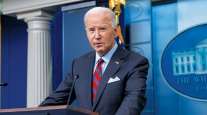Senior Reporter
Federal Watchdog Recommends Congress Improve Freight Infrastructure Grants

[Stay on top of transportation news: Get TTNews in your inbox.]
In a report raising concerns about the U.S. Department of Transportation’s management of infrastructure grants popular among state officials, the Government Accountability Office recommended Congress reform the program.
“During the next reauthorization for surface transportation programs, Congress should consider including language in the reauthorization bill that would require DOT to develop and implement transparency measures for DOT’s review and selection process for discretionary grants,” GAO stated in a recent report titled, “Discretionary Transportation Grants: Actions Needed to Improve Consistency and Transparency in DOT’s Application Evaluations.”
Besides recommending legislation that would enhance the program’s transparency, GAO recommended the department document its reason for seeking additional information from applicants, as well as provide additional information about the selection process.
Specifically, the report determined DOT officials did not “sufficiently document” the purpose for reaching out to applicants. The department had followed up with 42 out of 97 applicants who lacked sufficient information for eligibility determination.
“If DOT does not clearly communicate and document its process regarding applicant follow-up, the process lacks transparency and the assurance of fairness,” according to the report. “DOT’s documentation does not provide insight into why projects were selected for awards, an issue GAO has previously noted and recommended DOT address.”

GAO indicated it audited the program from July 2018 to June 2019. GAO has recommended that DOT improve the transparency of discretionary grants programs since 2011.
Responding to a draft of the report, Deputy Assistant Secretary for Administration at DOT Keith Washington told GAO on June 7 the department concurred with the report’s recommendations to communicate and document the rationale for seeking additional information from applicants, as well as detailing merit criteria ratings. DOT also will look to assist congressional lawmakers with efforts aimed at improving the grants process in the reauthorization of a 2015 highway law.
Additionally, Washington added in his letter to GAO that DOT took steps to improve transparency in the grants program by “describing in greater detail how ratings will be assigned for multiple selection criteria.” DOT had also adopted a “consistent and documented approach for following up with applicants for additional information during the evaluation process,” he wrote.
The federal Infrastructure For Rebuilding America, or INFRA, grants program assists with the advancement of freight and highway projects. Eligible entities include agencies at states, municipalities, tribal governments and multistate groups. The 2015 FAST Act highway law outlines requirements to qualify for INFRA grants.
The Senate Environment and Public Works Committee intends to consider legislation Aug. 1 that would update programs in the 2015 law. The panel, which has jurisdiction over surface transportation programs, has yet to unveil a draft of the bill.
In fiscal 2018, some 26 projects were awarded INFRA grants totaling about $1.5 billion, according to DOT. Recipients included a rail improvement project in the Chicago area, which was awarded $132 million, and $65 million for widening an 18-mile stretch of Interstate 25 in Colorado.
Nebraska was awarded $18.3 million to expand a portion of the Heartland Expressway, a system of corridors through South Dakota, Colorado and Wyoming.
In President Donald Trump’s fiscal 2020 budget request for DOT, $2 billion was proposed for INFRA grants.
Formerly the FASTLANE grants, the Trump administration has touted the program’s potential for upgrading the way in which goods are transported nationwide.
“This administration is committed to revitalizing, repairing and rebuilding America’s aging infrastructure,” Transportation Secretary Elaine Chao said in a December 2018 statement. “By ensuring the right incentives, projects selected under this program will be better able to make significant, long-term improvements to America’s transportation infrastructure.”




